Rotary Peace Fellowship | Fully Funded Scholarship for Peacebuilders
Rotary Peace Fellowship | Fully Funded Scholarship for Peacebuilders
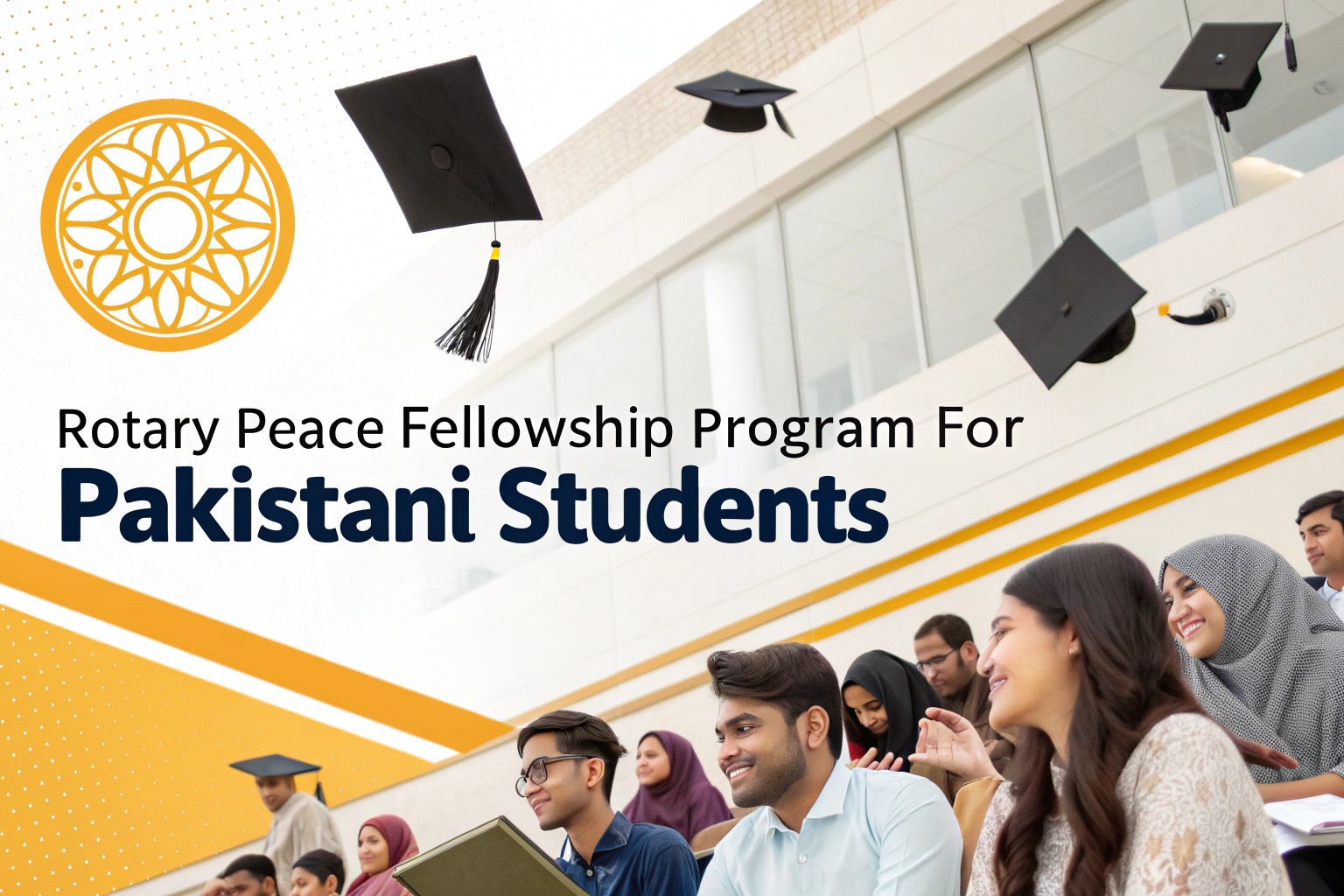
- Host Country - Rotary Peace Centers located in Various Countries
- Level - Master's & Professional Development Certificate Program
- Domain - Peace and Conflict Resolution
- No. of Scholarships - Up to 130
- Benefits - Fully Funded
- Application Submission Window - Opens in February and Closes on May 15th Each Year

The Rotary Peace Fellowship is a great scholarship for people who want to promote peace and solve conflicts around the world. It provides academic training, hands-on experience, and chances to network professionally, helping leaders become real change-makers for peace. For Pakistani citizens, this fellowship is a fantastic opportunity to make a real difference.
The Rotary Peace Fellowship is a program by The Rotary Foundation that gives out around 130 fully funded fellowships each year to standout individuals from different countries. These fellowships let recipients study at Rotary Peace Centers in top universities. The goal is to help current leaders get better at preventing and solving conflicts by offering them advanced education, hands-on experience, and a chance to connect with professionals in the field. When they finish, fellows are ready to tackle tough peace and development issues as global peacebuilders.
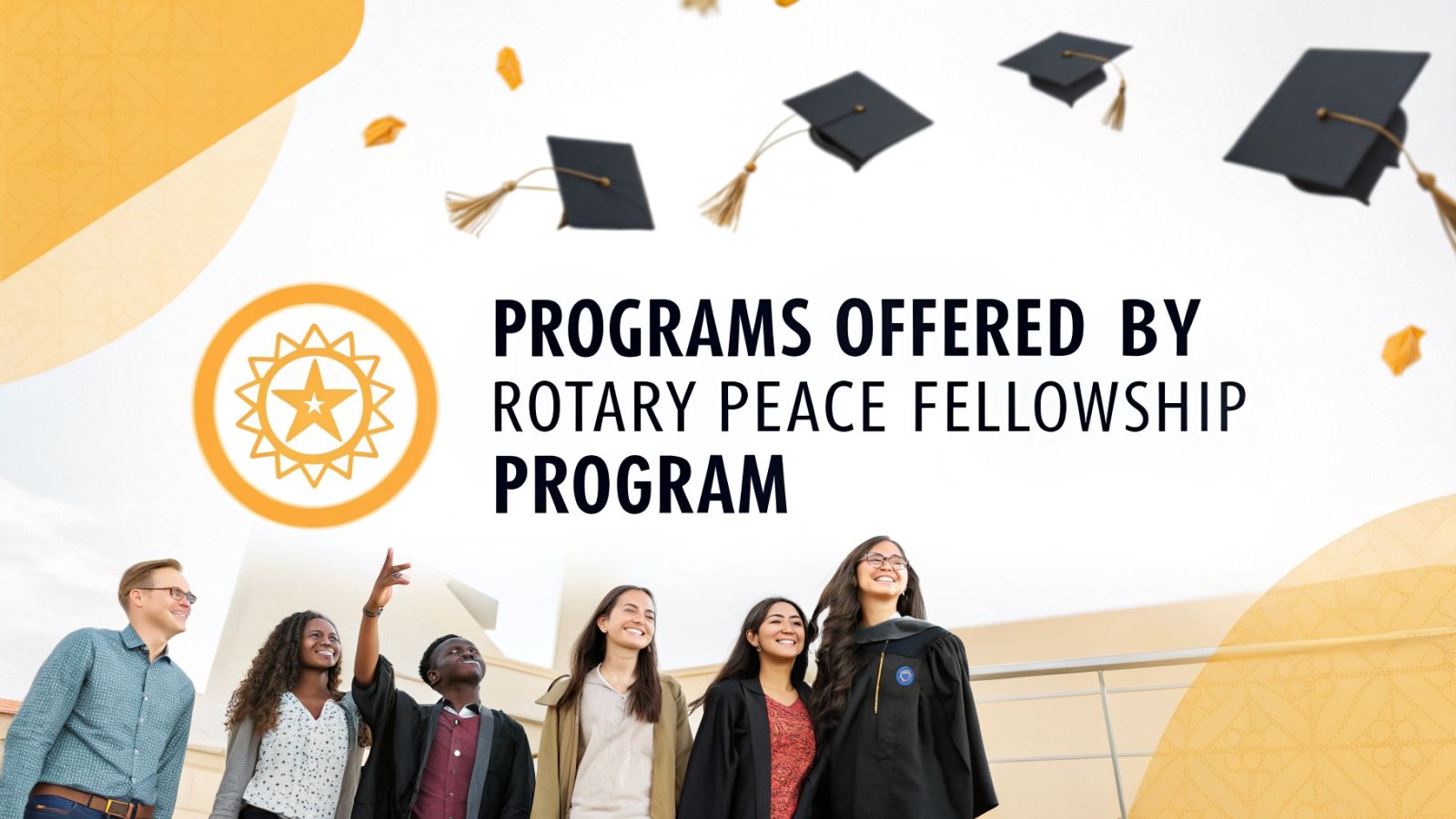
Programs Offered
The Rotary Peace Fellowship provides two different sorts of programs:
-
Master's Degree Programs:
- Duration: 15–24 months.
- Focus: Interdisciplinary curricula with research-informed teaching in peace and development topics.
- Components include small-group classroom instruction, a self-designed two- to three-month applied field experience, networking opportunities, a workshop series, and a final seminar.
-
Professional Development Certificate Program:
- Duration: One year, mixing online learning, in-person classes, and an independent project.
- Focus: Aimed at people who lead social change and have a lot of experience in peace-related work.
- Components: It starts with an online course, followed by a 10-week on-site course that includes field studies. Then, there’s a nine-month period to carry out a social change initiative with online support, finishing off with a capstone seminar on-site.
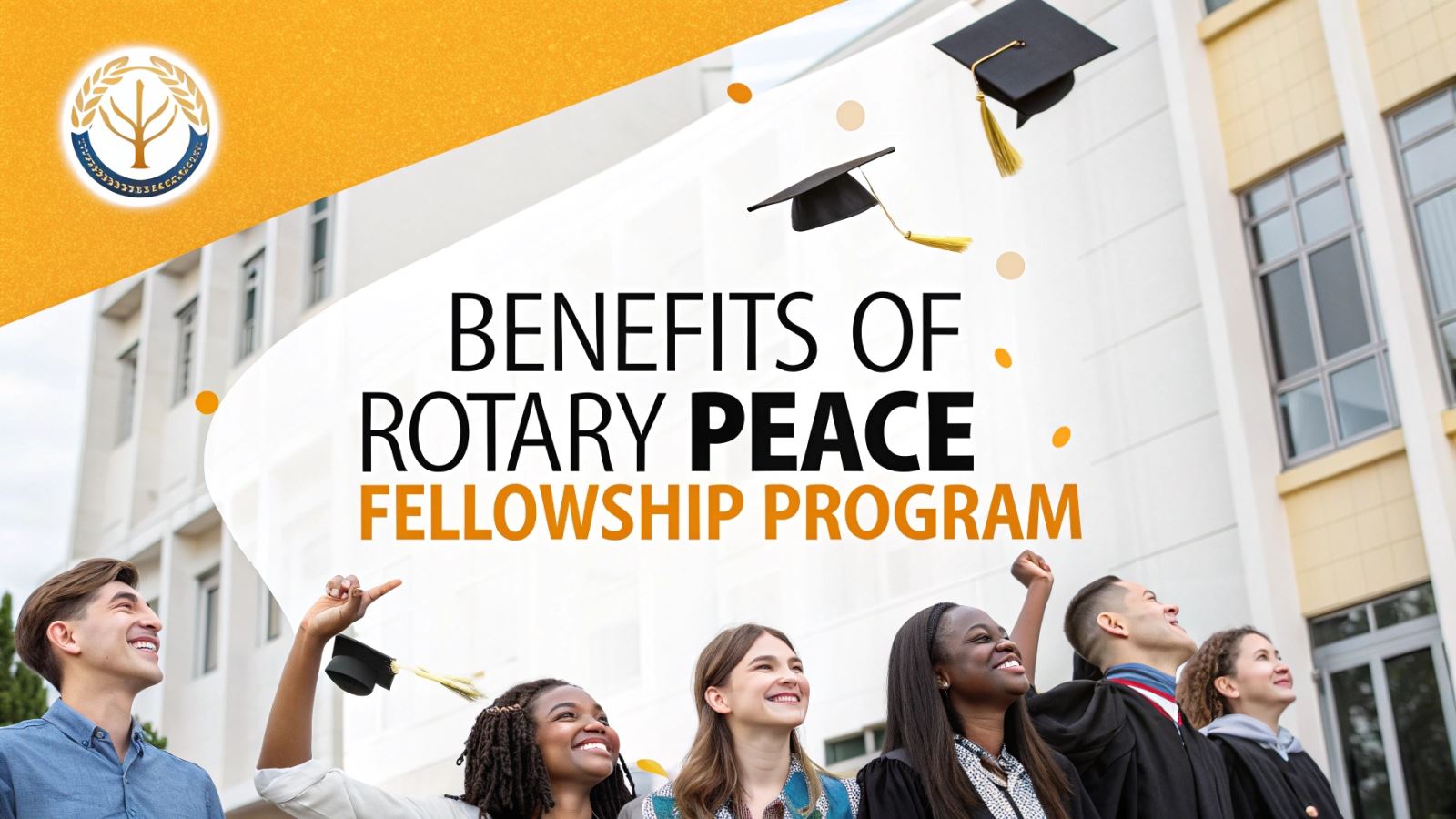
Benefits
The Rotary Peace Fellowship is a comprehensive, fully supported program that covers a wide variety of expenses, allowing fellows to focus only on their academics and professional growth. Benefits include:
- Full Tuition and Fees: All academic and university fees are covered.
- Room and board: Accommodation and living expenses are covered.
- Round-trip transportation costs to and from the host university are included.
- Applied Field Experience expenditures: All expenditures associated with the obligatory field study or internship are covered.
- Health Insurance: Comprehensive health insurance is provided throughout the fellowship.
- Stipend: A significant monthly stipend is frequently provided to cover personal costs.
- Networking: Access to a global network of researchers, peacekeepers, and Rotary members.
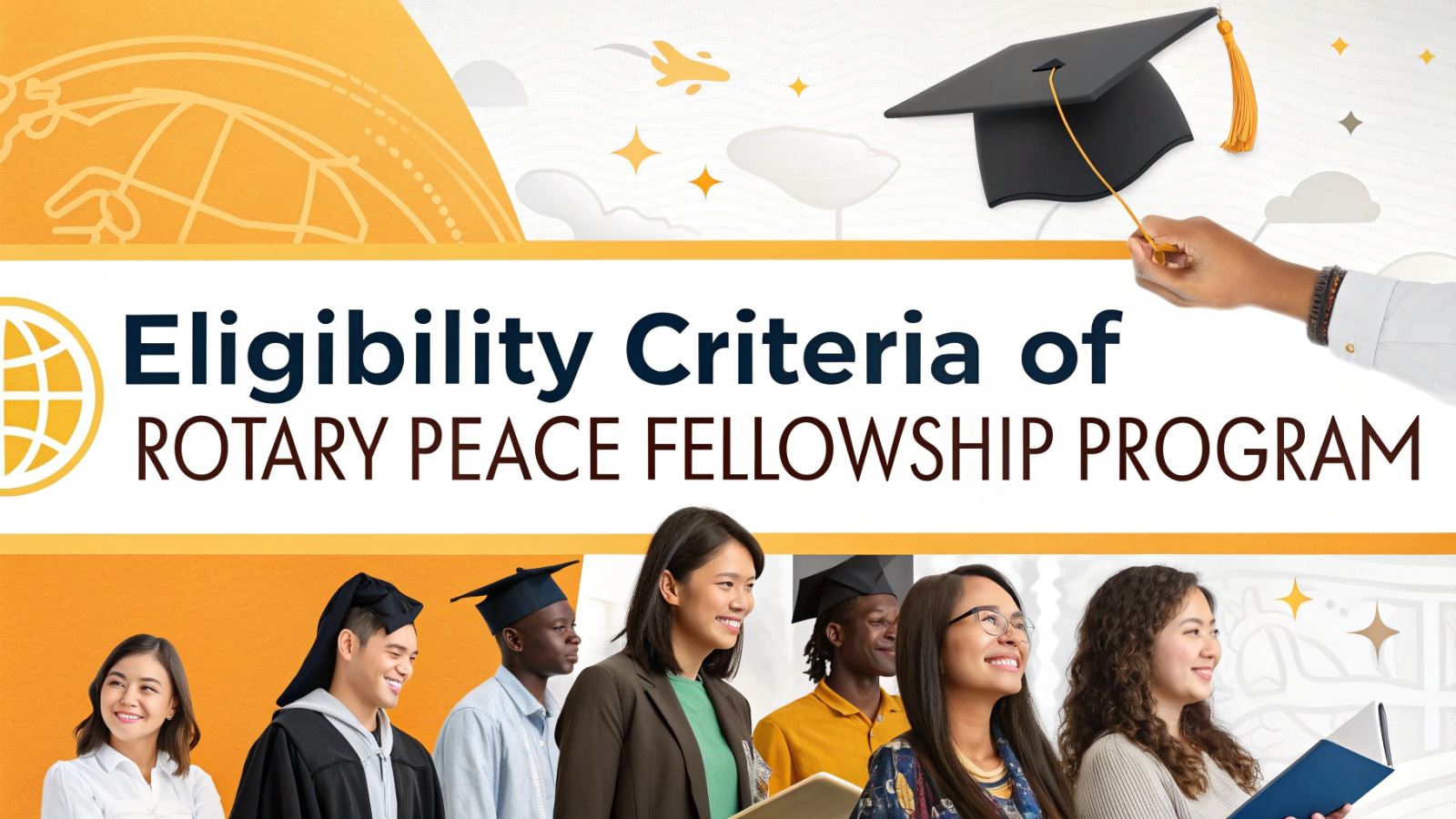
Eligibility Criteria
Pakistani citizens can apply for the Rotary Peace Fellowship if they match the following criteria:
- English Proficiency: Must be fluent in English. Master's degree applicants whose first language is not English must have a valid TOEFL or IELTS score (taken within the last two years) that meets the partner universities' minimal scores.
- Bachelor's Degree: Must have a bachelor's degree with an excellent academic record.
-
Work Experience:
- Master's Program: Three years of full-time, meaningful employment or volunteer experience in peacekeeping or development are required.
- Certificate Program: At least five years of full-time, relevant employment or volunteer experience in peacekeeping or development is necessary.
- Relevant experience may include direct peacebuilding or conflict resolution, as well as work in resource and environmental issues, education and literacy, women's rights, journalism, public health, and disease prevention, particularly with non-profit or multilateral organizations, in developing countries, with youth, or through local or international volunteer work.
- Commitment to Peace: A strong commitment to cross-cultural understanding and peace, as evidenced by professional and academic achievements, as well as personal or community service.
- Leadership Potential: Showed potential for leadership in their chosen sector.
- Time Gap: A minimum of three years between the applicant's most recent academic degree program (undergraduate or graduate) and the start date of their proposed fellowship.
- Current Enrollment: If you're already in an undergraduate or graduate program, you can't apply.
- Rotary Affiliation: If you're an active Rotarian, work for a Rotary club or district, Rotary International, or any other Rotary group, along with your kids, grandkids, spouses, or parents, you can’t apply either. If you used to be a Rotarian, you and your family need to wait 36 months after you leave before you can apply.
- Previous Rotary Peace Fellows and Global Grant Scholars: Recipients of a Rotary Global Grant scholarship or a Rotary Peace Fellowship must wait three years after completing the professional development certificate program before applying for the Master's degree. Rotary Peace Fellows who have finished the master's degree program must wait five years before applying for the certificate program.
- Country of Study: Master's Fellows are not permitted to study at a Rotary Peace Center in their home country or permanent residence. (Exceptions may apply to certain regional certificate programs.)
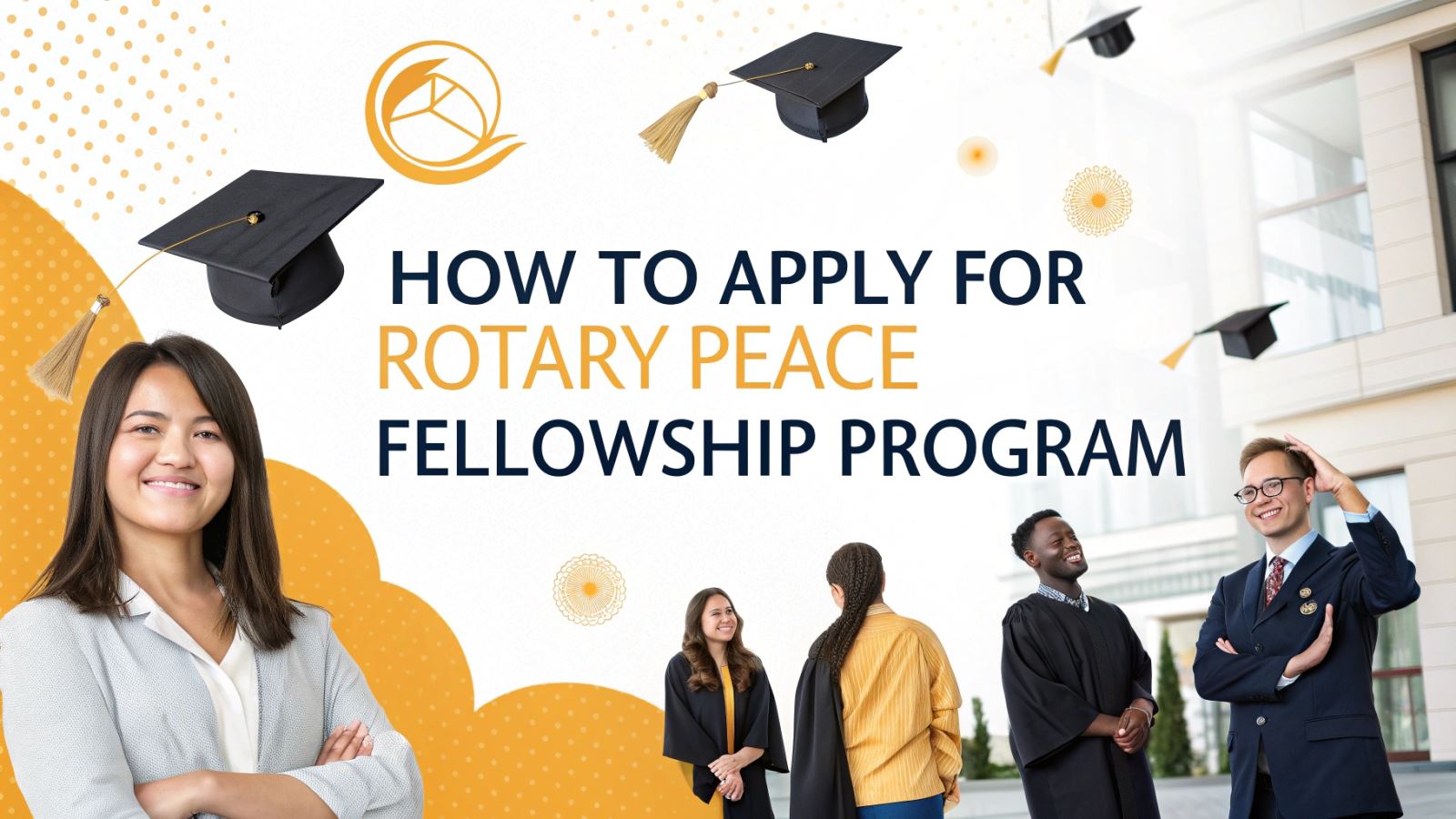
How to Apply
Applying for the Rotary Peace Fellowship is pretty competitive, so it’s important to prepare well. If you're from Pakistan, here’s what you need to do:
- Review Eligibility: Make sure you meet all of the prerequisites and limits for the Master's or Certificate program. You cannot apply for both at the same time.
- Research Peace Centers: Explore the curricula and programs available at each Rotary Peace Center. Determine which program best fits your academic and career goals.
- Connect with a Rotary Club or District: This is a critical step. Contact your local Rotary club or district in Pakistan. Rotary clubs and districts play an important part in the application process by mentoring and endorsing applicants. To find the nearest club, go to the Rotary International website and use the "Club Finder".
-
Get Your Documents Ready: Collect all the application materials you need. Usually, this includes:
- Resume/CV: Make sure to list the months and years for every job, internship, or volunteer role you've had.
- Academic Transcripts: If you're applying for a Master's degree, send in transcripts from all the colleges or universities you've attended. This should include the names of your courses and the grades you got. If your transcripts aren't in English, they'll need to be translated by a certified translator.
- English Test Scores: If your first language isn't English, you'll need a valid TOEFL or IELTS score for a Master's application.
- Recommendations: Master's applicants must provide two recommendations—one academic and one from a job. If you're applying for a certificate program, you need two professional recommendations, including one from your current boss. Your recommenders should fill out their part right on the application site.
- Video Statement: You might need to submit a personal video statement to share why you're interested in the program and your goals.
- Essays: You’ll need to write a few essays showing your dedication to peace and resolving conflicts, answering specific questions and keeping within 300-500 words each.
- Social Impact Plan: If you're applying for the Certificate program, you must submit a detailed social impact plan.
- Online Application Submission: To apply, just fill out and send your application through the Rotary Foundation's online portal. Make sure to include all your documents in English.
- District Endorsement: Once you send in your application, your local Rotary district will take a look at it and might set up some interviews. If they choose you, they'll endorse your application. Usually, the deadline for this is July 1st.
- Final Selection and University Admission: If you get chosen for a fellowship (you'll usually hear back in November), you'll find out which Rotary Peace Center is where you'll study. After that, it's up to you to apply and get into the degree program at that university. Just remember, being selected for the fellowship doesn’t mean you'll automatically get into the university.




